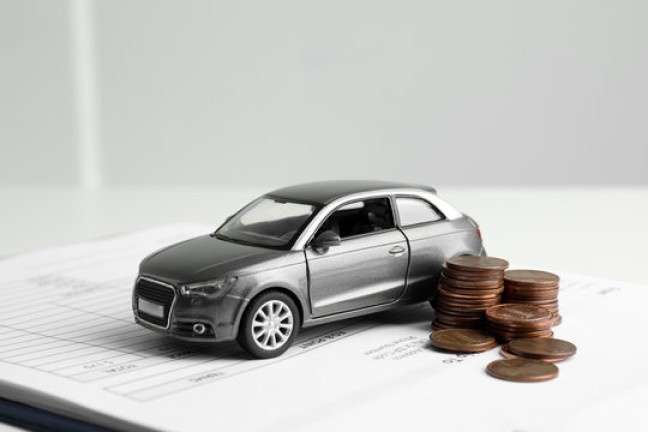If you find yourself in a situation where you have a 500 credit score and are in need of car financing, you may be wondering what your options are. Can you still get a loan for a car? What kind of interest rates and terms can you expect? In this article, I’ll walk you through everything you need to know about car financing with a 500 credit score, covering the challenges, options, and strategies to improve your chances of securing a loan.
Table of Contents
Understanding the 500 Credit Score
A credit score of 500 is generally considered a poor credit score by most lenders. The score is calculated by credit bureaus like Equifax, Experian, and TransUnion using your financial history, including how well you’ve managed debt, paid bills, and any past bankruptcies or foreclosures. A score in this range indicates that you may have a history of late payments, high credit utilization, or even defaults. This can make it more difficult to secure traditional financing, especially for significant purchases like a car.
However, just because you have a 500 credit score doesn’t mean you’re completely out of options when it comes to car financing. It’s still possible to get a loan, though you might face higher interest rates and more stringent conditions. I’ll explore the various paths you can take to finance your car purchase with a score like this.
Your Car Financing Options with a 500 Credit Score
When you apply for a car loan with a 500 credit score, you’ll mostly be looking at two types of financing options: loans from traditional lenders and loans from alternative sources. Let’s look at each option more closely.
1. Traditional Lenders (Banks and Credit Unions)
Banks and credit unions typically offer the best interest rates and loan terms. However, with a 500 credit score, you might have trouble qualifying for a loan from these institutions, as they generally prefer borrowers with higher credit scores (typically 600 or above). If you are able to secure a loan from a bank or credit union, it will likely come with higher interest rates. Additionally, the loan amount might be lower, and you could be required to provide a larger down payment.
Some credit unions are more willing to work with members who have poor credit, so if you are a member of one, it may be worth approaching them. Credit unions also tend to have more flexible lending policies than traditional banks, which is another reason they could be a better choice if your credit score is in the 500 range.
2. Subprime Lenders
Subprime lenders specialize in offering loans to borrowers with poor credit. These lenders understand that borrowers with low scores may not have the best financial history, but they’re still willing to work with them. The catch here is that subprime loans typically come with higher interest rates, which can add up quickly and make your car much more expensive in the long run.
While a subprime loan might be your best bet for getting approved, it’s important to be cautious. Always ensure that the terms of the loan are clear, and check for any hidden fees that could make the loan even more expensive.
3. Buy Here Pay Here (BHPH) Dealerships
Buy Here Pay Here dealerships are another option for those with low credit scores. These dealerships offer in-house financing, meaning they act as both the seller and the lender. While this may sound like a convenient option, I recommend proceeding with caution. Many BHPH dealerships charge very high-interest rates and impose strict repayment terms. Additionally, some BHPH dealerships might have limited car inventory or may try to sell you a car that isn’t in the best condition.
Before going this route, be sure to read the fine print and ask questions about the interest rate, down payment requirements, and repayment terms.
4. Co-Signer Loans
If you’re struggling to secure a loan on your own, a co-signer could help. A co-signer is someone with a better credit score who agrees to take responsibility for the loan if you fail to make payments. This can give the lender more confidence in your ability to repay the loan.
It’s important to note that the co-signer is taking a significant risk, so this option should be approached carefully. Make sure that both you and your co-signer fully understand the terms of the loan before proceeding.
Factors That Impact Your Car Loan Approval with a 500 Credit Score
While your credit score plays a major role in determining whether you’ll be approved for a car loan, several other factors also come into play. Understanding these factors can give you a better chance of approval.
1. Down Payment
One of the easiest ways to increase your chances of getting approved for a car loan with a 500 credit score is by making a larger down payment. The more money you put down upfront, the less risk the lender takes on. A larger down payment shows that you’re serious about your purchase and that you have some financial stability.
For example, if the car you want costs $10,000 and you can afford to put down $3,000, your loan amount will be reduced to $7,000. A larger down payment could also help lower your interest rate, as it reduces the lender’s risk.
2. Debt-to-Income Ratio
Lenders will often look at your debt-to-income ratio (DTI) to determine whether you can afford a car loan. This is the percentage of your monthly income that goes toward paying debts. A lower DTI indicates that you have more disposable income to cover additional debt, which can improve your chances of getting approved for a loan.
To calculate your DTI, add up all of your monthly debt payments (including credit card payments, student loans, etc.) and divide that by your gross monthly income. A DTI of 36% or lower is generally considered acceptable by most lenders.
3. Income Stability
Lenders also look at the stability of your income when deciding whether to approve you for a loan. If you’ve been employed at the same job for several years, or if you have a steady income from self-employment, you’ll have a better chance of being approved. Lenders want to ensure that you’ll be able to make your car loan payments on time.
4. The Car You’re Buying
The make, model, and age of the car you want to purchase will also impact your financing options. Lenders are more likely to approve loans for cars that have a higher resale value. A new car or a certified pre-owned car is typically a safer investment for a lender than an older car with high mileage. Additionally, certain cars might be seen as less risky to finance, so choosing one with a better resale value could help you secure better terms.
Example: Calculating Car Loan Payments with a 500 Credit Score
Let’s say you’re looking to buy a used car for $8,000. You have a credit score of 500, and you’ve saved up $1,000 for a down payment. You decide to apply for a car loan through a subprime lender, who offers you an interest rate of 18% for a 60-month term.
Here’s how your loan calculation would look:
Loan Amount: $8,000 – $1,000 (down payment) = $7,000
Interest Rate: 18% annually
Loan Term: 60 months
Using a car loan calculator, the monthly payment would be approximately $177.14. Over the life of the loan, you would end up paying $10,686.56, which includes $3,686.56 in interest charges.
As you can see, securing a loan with a poor credit score can result in higher payments and a larger total loan amount due to the higher interest rate. This is why it’s crucial to consider the total cost of financing and weigh your options carefully.
Strategies for Improving Your Chances of Getting Approved
If you’re serious about securing car financing with a 500 credit score, there are several strategies you can implement to improve your chances of approval.
1. Check Your Credit Report
Before applying for a car loan, it’s a good idea to check your credit report for any errors. If there are mistakes, such as incorrect late payments or accounts that don’t belong to you, you can dispute them with the credit bureaus. Correcting these errors could help improve your credit score.
2. Save for a Larger Down Payment
As mentioned earlier, making a larger down payment is one of the best ways to increase your chances of getting approved for a car loan. A larger down payment shows that you’re financially responsible and reduces the amount you need to borrow.
3. Consider a Co-Signer
If you have a friend or family member with good credit, asking them to co-sign the loan could increase your chances of approval. Just be aware that they’ll be responsible for the loan if you fail to make payments.
4. Shop Around for the Best Terms
Don’t settle for the first loan offer you get. Shop around at different lenders to find the best interest rates and terms. Some lenders may be more flexible than others when it comes to approving loans for people with poor credit.
5. Improve Your Credit Score
If possible, take the time to improve your credit score before applying for a car loan. Even a small increase in your score can help you qualify for better loan terms. You can improve your credit score by paying down existing debt, making on-time payments, and reducing your credit card balances.
Conclusion
Financing a car with a 500 credit score can be challenging, but it’s far from impossible. While you may face higher interest rates and stricter terms, understanding your options and taking steps to improve your financial situation can increase your chances of securing the financing you need. Whether you choose to work with a subprime lender, a credit union, or a Buy Here Pay Here dealership, always make sure you fully understand the terms of the loan before committing.
By making a larger down payment, considering a co-signer, and shopping around for the best rates, you can improve your chances of getting approved for a car loan, even with a 500 credit score.




